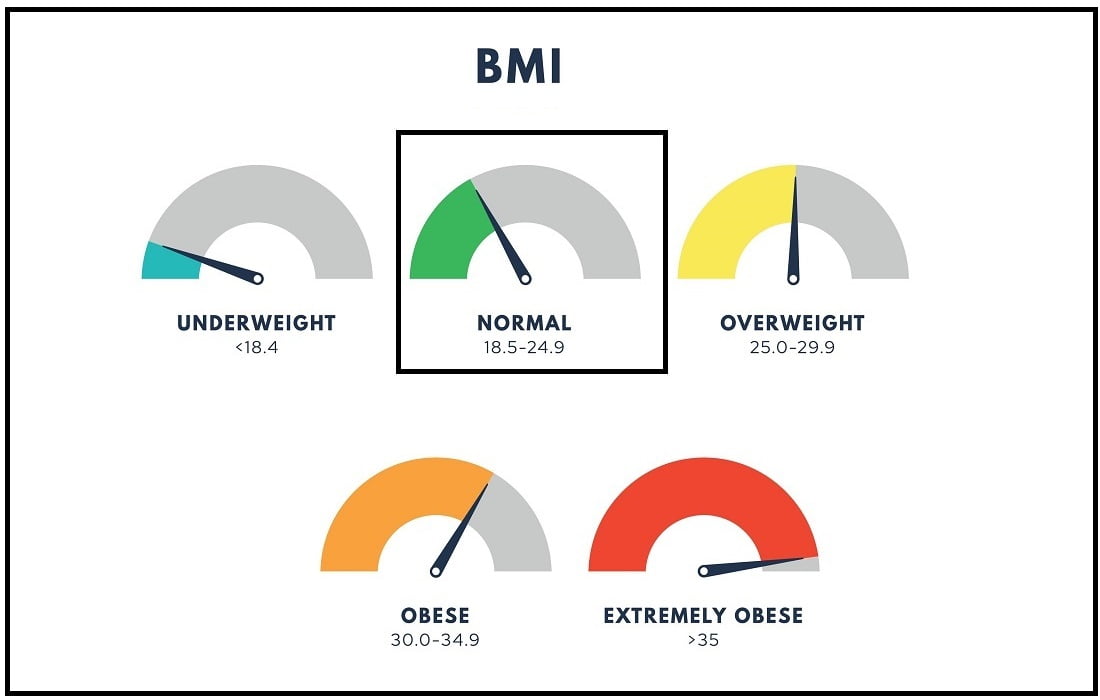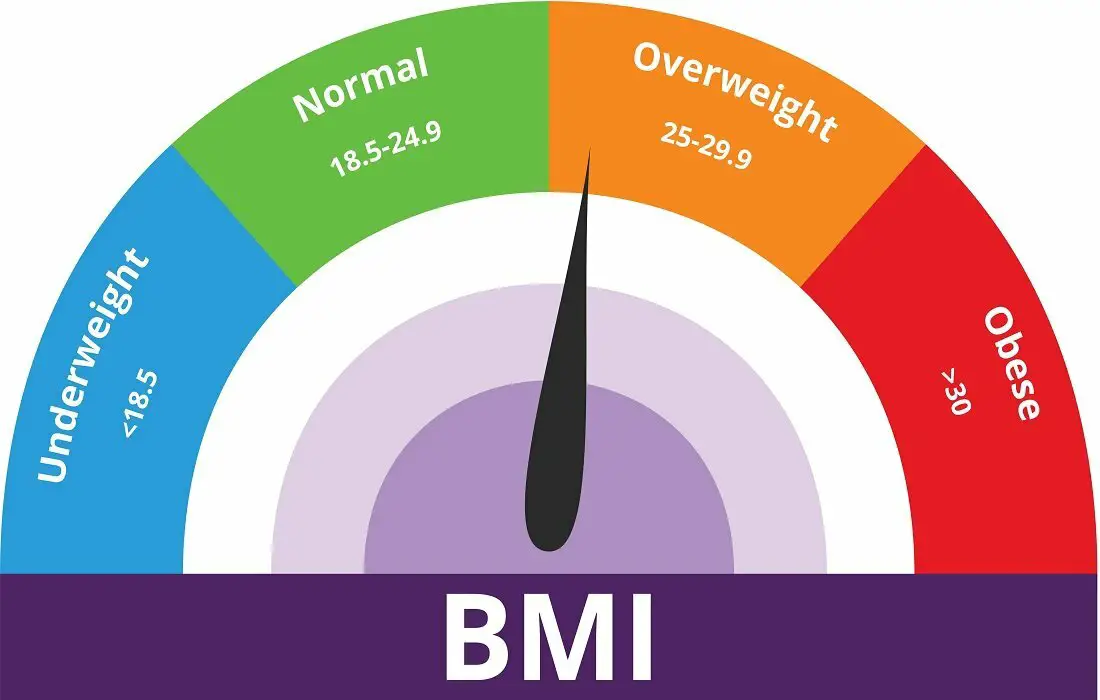Knowing your Body Mass Index (BMI) is a crucial first step in living a healthy lifestyle. BMI is a numerical measure of a person’s body weight in proportion to height. It is a helpful instrument that determines if a person is underweight, at a healthy weight, overweight, or obese. This comprehensive guide will explain what BMI is, why it is crucial, how to calculate it, tips to maintain a healthy BMI, and what it means for your general health.
What is BMI?
The body mass index (BMI) is a numerical value calculated from a person’s height and weight. It offers a quick and easy technique to determine if a person’s weight is within a healthy range for their height. Healthcare professionals, nutritionists, and individuals worried about their health use BMI since it provides a picture of individual body composition.

What is a normal BMI?
A normal BMI ranges from 18.5 to 24.9, considered healthy for most people. Review additional factors besides BMI, such as muscle mass and body composition, as each person’s health varies.
The BMI categories are as follows:
- Below 18.5: Underweight
- 5 – 24.9: Normal or Healthy Weight
- 0 – 29.9: Overweight
- 0 and above: Obesity
Formula to calculate BMI:
The BMI formula is so easy and is as follows: Weight in kilograms divided by height in meters squared = (kg/m2).
For instance, if your height is 1.75 m and your weight is 70 kg:
BMI = 70 / (1.75^2) = 22.86
Your BMI is approximately 22.86.
BMI ranges may differ for specific groups, such as aged people or athletes and may not be the best accurate measure for everyone considering factors such as bone density, body composition, and muscle-to-fat ratio. Use it with extra health factors for detailed evaluation with personalized guidance from a healthcare expert.
What are the health risks if your BMI is too high?
High BMI, a measurement of weight within a healthy range for height, might state excess body fat, which may result in several health problems. High BMI signals several diseases, including diabetes, heart disease, obesity, and several cancers.
- Obesity-Related Conditions: Obesity is associated with having a high BMI, and obesity is a risk factor for a variety of health issues, including:
- Type 2 Diabetes
- Cardiovascular Diseases
- Certain Cancers
- Sleep Apnea
- Fatty Liver Diseases
- Joint problems: Osteoarthritis risk and joint pain can increase by carrying more weight, causing more stress on your joints.
- Respiratory Issues: Obesity is associated with a high BMI and can cause respiratory issues such as shortness of breath, asthma, and impaired lung function.
- Mental Health: A high BMI can lead to mental health issues like depression and low self-esteem due to societal stigma and discrimination.
- Gastrointestinal Disorders: A high BMI can increase the prevalence of obesity-related conditions like GERD and gallstones.
- Reproductive Problems: High BMI can impact fertility in both men and women and increase the risk of difficulties during pregnancy and labor.
- Quality of Life: A high BMI can impact the quality of life due to physical and emotional challenges.
Individuals’ BMI-related health risks vary, with genetics, family history, and lifestyle choices playing a role. Consult a healthcare professional for detailed guidance and informed decisions about BMI and health.

How useful is the Body Mass Index (BMI) calculator?
BMI is a helpful tool for identifying people at risk for obesity-related health issues and motivating healthier eating habits. It aids researchers to track obesity prevalence and understand prevention efforts. A BMI calculator gives a precise picture of people who are overweight or obese. It appears as obese, but since it does not consider visceral fat or muscle mass. BMI calculators are a good starting point, but they are not perfect.
Should we stop giving so much “Weight” to BMI?
Yes, Healthcare professionals warn against using BMI as the sole measure of health because it excludes factors such as muscle mass, body composition, and fat distribution. Instead, a holistic approach encourages considering factors such as diet, physical activity, genetics, and well-being. Get a more accurate picture with the help of more tests like measuring your waist circumference and body fat percentage.

TIPS for Maintaining a Healthy BMI
Maintaining a healthy BMI requires a balanced lifestyle, including proper nutrition, regular physical activity, and well-being, with these tips guiding you toward achieving and sustaining a healthy BMI.
- Balanced Diet
- Portion Control
- Regular Exercise
- Strength training
- Stay Hydrated
- Track your Intake
- Limit Sugary Beverages
- Get Adequate Sleep
- Stress Management (Practice meditation, yoga, or deep breathing exercises)
- Regular Check-Ups
- Set Realistic Goals
- Social Support
- Mindful Eating
- Stay Informed with the latest research and guidelines.
- Celebrate your progress
Maintaining a healthy BMI involves feeling good, being active, and nourishing the body with wholesome foods. For personalized advice, consult a healthcare professional or a certified dietitian.
Conclusion
In conclusion, calculating your BMI is the best tool for assessing your weight and health, allowing you to make informed lifestyle decisions and set attainable goals. But, it is only one part of the journey to optimal health, so consult a healthcare professional for a comprehensive evaluation.
